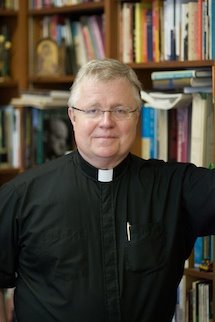Reflections on Jeremy Lin’s Jump Shot
Being the type of person that enjoys culture and everything associated with arts, music and religion, I am of course smiling when it comes to the media talking about being Christian. Often times Christianity is mocked or made fun of as passe. However recently we’ve all been surprised by two athletes who have risen to the front pages of our newspapers. Namely, Denver’s Tim Tebow and the Knicks’ Jeremy Lin.
It’s interesting that the media is making a big deal about the fact that Lin is a Christian. If anybody follows the Knicks, you have had many bruising years of disappointment, upset and even despair. Somehow in a haphazard way, Jeremy Lin rejected by other basketball teams and resigned to sitting on a couch even sleeping there is now given the Knicks one of their longest winning streaks in recent memory. He lights up the court with his once overlooked basketball skills which are amazing everyone. Night after night Lin has been helping the Knicks defeat all competitors and sometimes doing it in the fading minutes of the game.
What I find interesting is that Lin is Asian, he is tall but not by basketball standards (only 6’3”) and he is humble. But the papers are noting something more, namely that his faith has created an appeal too. For example, his success has fired the imagination of Asian American Christians and Christians in China who continue to face varying levels of persecution. Recently, I read that micro blogging messages tend to be very enthusiastic about his faith. “Your physical agility has shown me the glory and omnipotence of God” one internet user wrote. Another blogger wrote “How should young Christians live the life of the Lord?” It appears that Lin is becoming a natural symbol for Christians in China. “Just by his being a Christian, it is a fantastic way to broadcast the ways of Christ,” he said .
It is always interesting to watch how people resinate with great curiosity the commitment and beliefs of others. Soren Kierkegaard always was quick to point out that there are many who “flirt” with Christian beliefs and practices but who never really make a commitment. I’ve seen many so called “seekers” who are in a permanent holding pattern circling the airport but will never land. Sometimes it is appealing to watch someone who has decided to do what Kierkegaard also says is key to understanding the nature of faith. He says that faith is being willing to “take a leap into 50,000 fathoms.” Understood differently, faith involves a leap into the unknown with the trusting feelings that it will all be okay.
Luther points out that many of us needed props for our faith. However props really in his words destroy faith. So when a scientist declares something about god, or when people come back from the process of dying to say that they were floating on air, going into the next dimension but came back - this is really not what we mean when we talk about faith.
Believing, trusting, letting go of all the crutches, props and reassurances is what faith is all about. In a word, faith is trust. It’s hard to come by but for those fans of Lin and Tebow, it is very appealing. To us who believe it’s something we do every day when we let go and let God into our lives and our world. It’s not as glamorous as a jump shot for three points in the last second of a game but it does get you through the day when you seem to have run into a lot of dead ends and difficulties.
--MEH
.jpg)